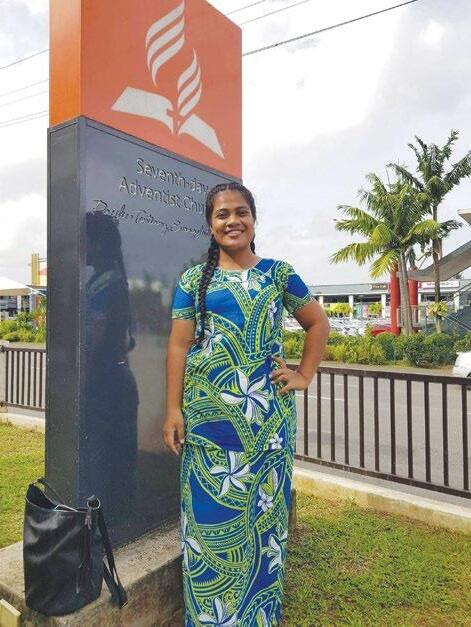
3 minute read
Statements on The Voice and referendums & voting
The Voice
The Seventh-day Adventist Church in Australia believes that all persons are created in the image of God, therefore all people of all races are of equal value. The Bible calls us to nurture and seek reconciliation for and with all people and as followers of Jesus, we are called to minister to people who are hurting, and those who have been marginalised and disadvantaged.
We recognise that First Nations people continue to suffer from many inequalities and inequities as members of our society, and we acknowledge and express our sorrow for injustices that have occurred and for those that are ongoing. We support principles of healing, recognition and reconciliation, as well as the greater engagement, involvement, and representation by First Nations people in our society generally. We believe that such support should not be limited to mere words but also to acts of love, partnership, and compassion towards First Nations people.
For more than 50 years, we as a Church have endeavoured to model these principles through the establishment and operation of a department for Aboriginal and Torres Strait Islander Ministries (ATSIM) that has given Indigenous Australians from key regions a voice to discuss ministry and other matters regularly with leaders at Local Conference and National ATSIM committees. The role, influence, and leadership of ATSIM continues to make an important contribution to our Australian Church through its oversight and support of the church’s ministry to First Nations people. A significant milestone was achieved in 2017 with the appointment of the first Indigenous Australian to serve as the National ATSIM director. Despite these best endeavours, we would acknowledge that the Church has not always got it right in the way we have engaged with First Nations people in the past, however, we are committed to continuous improvements and working towards a better future.
The National ATSIM Committee held at Mamarapha College in May 2023, spent significant quality time listening to First Nations representatives reflecting on their different perspectives on what “The Voice” meant for them. In this meeting, all the differing views were respected and there was unity and harmony amongst our people. The consensus of indigenous and non-indigenous committee members concerning the upcoming referendum was that regardless of the outcome, ATSIM, in collaboration with the wider church will continue to share the love of Jesus with First Nations people.
We see and understand that the journey towards reconciliation, including these current discussions can be a source of pain and sometimes trauma for First Nations people and we continue to seek opportunities to minister to and support anyone who has been negatively impacted by this conversation.
We urge faithful and prayerful personal reflection and careful open-hearted listening to First Nations people as they share their experiences and reflections.
Above all, as a Church we call for respectful conversation and diligent, prayerful consideration of the options and information available on the upcoming referendum. Following the vote, Australians of all convictions should move forward in a spirit of compassion and unity.
Regardless of the outcome, we continue to stand in solidarity with First Nations people, as our partners in ministry, to address the inequalities and inequities they continue to suffer in Australian society.
Referendums and voting
The Seventh-day Adventist Church encourages all eligible persons to participate in society and exercise their right to vote in local, state, and federal elections and in referenda. In no case does the Church dictate how individuals should vote—whether that vote be for a candidate, or for a matter of public policy, as in a referendum. The opportunity to cast a vote is both a matter of conscience and a human right guaranteed by the constitution of Australia.
The Church strongly encourages its members, when considering how to exercise their voting rights, to do so using the lens of Christian principles such as justice, fairness, honesty, integrity, and above all, the Christian ethos of love for all. These principles largely underpin the function of civil society in countries such as Australia.
Spinach and tofu filled shells
This easy-to-make plant-based pasta recipe will please even the fussiest of eaters. A dairy-free twist on a family favourite.
Ingredients
12 jumbo pasta shells
1 tbsp oil
1 small brown onion, diced
2 garlic cloves, minced
2 shallots, finely sliced
¼ tsp ground nutmeg
½ tsp salt
300g baby spinach leaves
300g silken tofu, drained
2 tbsp nutritional yeast
700g bottle passata sauce
¼ cup pine nuts
Tips:
• Jumbo pasta shells can be found in some supermarkets and delis. Use cannelloni tubes if you can’t find jumbo pasta shells.
• Sprinkle with grated cheese or vegan cheese before placing in oven.

• Passata sauce is uncooked tomato puree that has been strained of seeds and skin removed.
Method
1. Bring water to boil in a large pot and add pasta shells. Cook until al dente, drain and cool in cold water.
2. Heat oil in frypan, add onion, garlic and shallots and saute until soft. Add nutmeg, salt and spinach. Saute until spinach is wilted. Remove from heat.
3. In a food processor, process tofu until smooth. Combine spinach mixture, tofu and nutritional yeast. Stir until well combined.
4. Pour enough passata into the base of a pie dish to cover the bottom. Spoon filling into pasta shells and place shells into dish.
5. Pour remaining sauce over shells. Sprinkle with pine nuts.
6. Bake in a moderate oven, 180°C, for 30 minutes. Serve with a green salad.
Nutritional Information (per serving)








